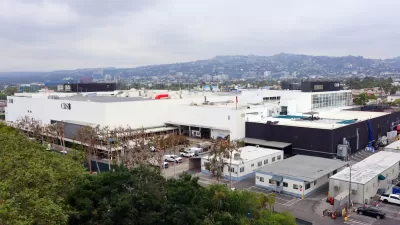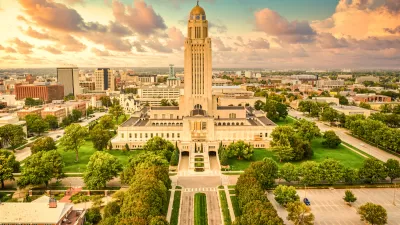A tour examining 'the future of work' looks at several 'coworking communities' around Manhattan, where freelancers and small businesses have pooled resources into one location.
"Coworking is rapidly emerging as a meme for the reorganization of knowledge work among entrepreneurs, programmers, writers and even, as we learned during our visits, sustainable furniture designers. The majority of discussions of the social implications of the Internet on the evolution of work and cities revolve around concepts such as the virtual office, online collaboration, and telecommuting. But, coworking communities (and related phenomenon that have grown out of the culture of the open source movement such as MeetUps and BarCamps) illustrate the ways in which these emergent forms of organizing are deeply embedded in physical places and, at the same time, enabled by new technologies such as laptops and wireless networks.
As the material artifacts of offices – messages, documents, photos and plans - are digitized and stored on servers, physical spaces have the potential to become increasingly open, flexible and sharable. Data security concerns aside, one can imagine a future scenario when most of the tools that we need to work effectively will be accessed and stored in "the cloud". This allows the dynamic reorganization and co-location of people, firms and activities that have been separated since the early days of industrialization, the advent of the hierarchical firm and the rise of cities themselves. For example, an office building might house a conference room that doubles as an entertainment room for the co-located apartments. Such arrangements will require new ways of thinking about private and semi-private spaces, trust and security, and ownership and property."
FULL STORY: Work and the Open Source City

Planetizen Federal Action Tracker
A weekly monitor of how Trump’s orders and actions are impacting planners and planning in America.

Maui's Vacation Rental Debate Turns Ugly
Verbal attacks, misinformation campaigns and fistfights plague a high-stakes debate to convert thousands of vacation rentals into long-term housing.

Restaurant Patios Were a Pandemic Win — Why Were They so Hard to Keep?
Social distancing requirements and changes in travel patterns prompted cities to pilot new uses for street and sidewalk space. Then it got complicated.

In California Battle of Housing vs. Environment, Housing Just Won
A new state law significantly limits the power of CEQA, an environmental review law that served as a powerful tool for blocking new development.

Boulder Eliminates Parking Minimums Citywide
Officials estimate the cost of building a single underground parking space at up to $100,000.

Orange County, Florida Adopts Largest US “Sprawl Repair” Code
The ‘Orange Code’ seeks to rectify decades of sprawl-inducing, car-oriented development.
Urban Design for Planners 1: Software Tools
This six-course series explores essential urban design concepts using open source software and equips planners with the tools they need to participate fully in the urban design process.
Planning for Universal Design
Learn the tools for implementing Universal Design in planning regulations.
Heyer Gruel & Associates PA
JM Goldson LLC
Custer County Colorado
City of Camden Redevelopment Agency
City of Astoria
Transportation Research & Education Center (TREC) at Portland State University
Jefferson Parish Government
Camden Redevelopment Agency
City of Claremont




























